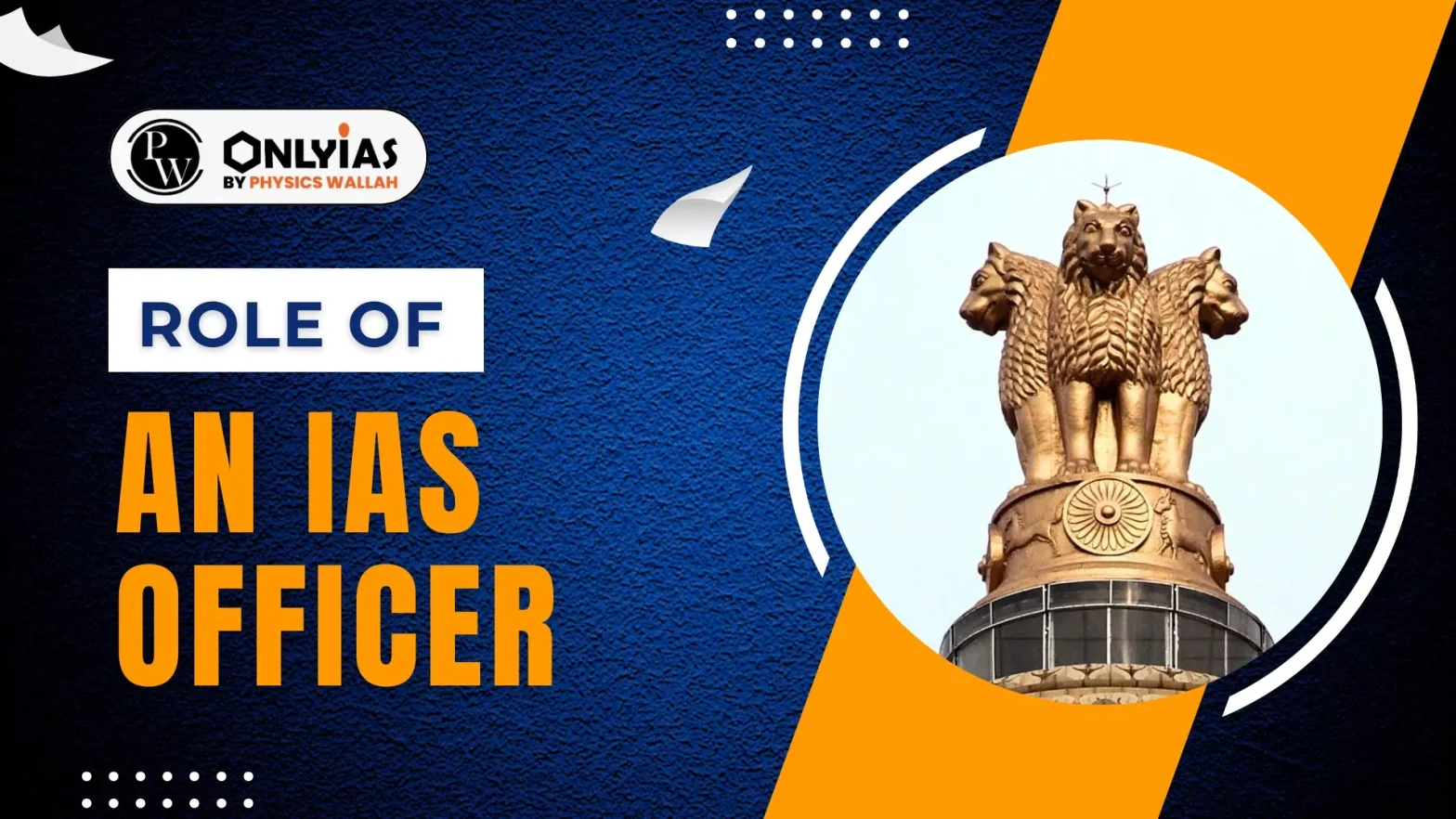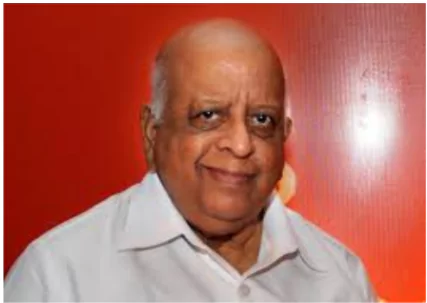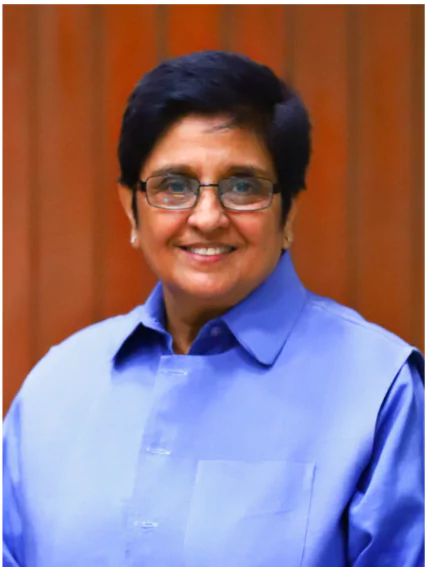Know about Role of an IAS Officer, powers, and responsibilities of IAS officers in India. Explore their impact on governance, public administration, and community welfare.

Role of an IAS Officer: An IAS officer (Indian Administrative Service Officer) plays an important role in shaping India’s governance and administration. The IAS officers implement government policies and ensure smooth administration across the nation. They serve in diverse capacities across various departments, making the role of an IAS officer multifaceted and dynamic.
In this informative guide, we will provide an overview of the roles of an IAS officer, their powers and duties, their involvement in public administration, and their daily work. We’ll also explore the key responsibilities of an IAS officer.
An IAS (Indian Administrative Service) officer is part of the civil service in India. These officers are selected through the strict UPSC Civil Services Examination, and their primary role is to manage public administration in India. IAS officers work at various levels, from district administration to central government departments, to oversee policy implementation and ensure effective governance. The job of an IAS Officer is highly prestigious and comes with significant responsibility, which makes it one of the most sought-after careers in India.
The role of an IAS officer contains a wide range of responsibilities and duties that must be carried out by them, these responsibilities differ depending on their postings. IAS Officers function as a bridge between the government and the public, by ensuring that policies are effectively implemented. An IAS officer generally serves at both state and central government levels, their duties are policy formulation, law and order maintenance, and ensuring the overall development of their respective regions.
Public administration is one of the core areas where the role of an IAS officer is most prominent. IAS Officers play a key role in ensuring the smooth functioning of public services, which includes the delivery of essential amenities like healthcare, education, and sanitation.
The powers and duties of an IAS officer provide them substantial authoritativeness, which is equally necessary to effectively manage wide-ranging responsibilities. IAS officers enjoy executive powers that allow them to enforce laws, oversee public projects, and maintain order.
The daily work of an IAS officer is based on their role and the department they are posted in. However, their day-to-day responsibilities generally include overseeing the smooth functioning of administrative tasks, policy implementation, and addressing issues that arise in their area of governance.
The career progression of an IAS officer is well-structured and the promotions of IAS officers are based on performance, experience, and seniority. Over time, an IAS officer can grow to top leadership positions in government, carrying on greater responsibilities.
| Career Promotion of an IAS Officer | ||
| Rank | Years of Service | Position/Designation |
| Junior Time Scale (JTS) | 0-4 years | Sub-Divisional Magistrate (SDM), Assistant Collector, or Under Secretary |
| Senior Time Scale (STS) | 5-8 years | Additional District Magistrate (ADM), Deputy Secretary |
| Junior Administrative Grade (JAG) | 9-12 years | District Magistrate (DM), Director |
| Selection Grade (SG) | 13-16 years | Special Secretary, Senior Deputy Secretary, Chief Development Officer |
| Super Time Scale (SAG) | 17-20 years | Divisional Commissioner, Joint Secretary |
| Above Super Time Scale (HAG) | 21+ years | Principal Secretary, Additional Secretary |
| Apex Scale | 30+ years | Chief Secretary of State, Secretary to Government of India |
| Cabinet Secretary | Top Rank | The highest post in the Indian civil service |
Several IAS officers have made significant contributions to the development and governance of India. Their work has not only impacted the regions they served but has also left a lasting legacy of dedication, reform, and public welfare.
| Some Famous IAS Officers and Their Contribution | ||
| IAS Officer | Contribution | Image |
| Armstrong Pame | Known as the “Miracle Man,” he built a 100-km road in Manipur without government aid. |  |
| T. N. Seshan | Revolutionized the election process as the Chief Election Commissioner of India. |  |
| Durga Shakti Nagpal | Famous for her crackdown on illegal sand mining in Uttar Pradesh. |  |
| Aruna Sundararajan | Played a key role in the Digital India initiative and telecommunications sector. |  |
| Ashok Khemka | Known for his efforts against corruption and illegal land deals in Haryana. |  |
| Kiran Bedi | First woman IPS officer, known for prison reforms and law enforcement initiatives. |  |
The role of an IAS officer is crucial in maintaining the governance and administration of India. From public administration and policy implementation to crisis management and law enforcement, their duties are varied and impactful. The IAS officer powers and duties equip them to handle immense responsibilities, and their work shapes the socio-economic landscape of India. With their hands deeply involved in development projects, public welfare, and law enforcement, the responsibilities of an IAS officer are key to the progress and stability of the nation.
Sign up for the PWOnlyIAS Online Course by Physics Wallah and start your journey to IAS success today!
| Related Articles | |
| UPSC Syllabus | UPSC Exam Pattern |
| UPSC Interview Question | UPSC Interview Dates |
| UPSC Mains Previous Year Papers | UPSC Mains GS Paper Exam Analysis |
The duties include policy implementation, law enforcement, public welfare, and supervising government departments and development projects.
IAS officers have powers related to law enforcement, administrative decisions, financial oversight, and maintaining order in their respective jurisdictions.
The highest post in the IAS is the Cabinet Secretary, who serves as the top civil servant in the Government of India.
An IAS officer's salary varies with seniority, starting around ₹56,100 per month (excluding allowances) and can go up to ₹2,50,000 at the highest levels.
The lowest post is typically that of a Sub-Divisional Magistrate (SDM), which is an entry-level position for new IAS officers.
Responsibilities include implementing government policies, managing resources, maintaining law and order, and coordinating development programs.

<div class="new-fform">
</div>